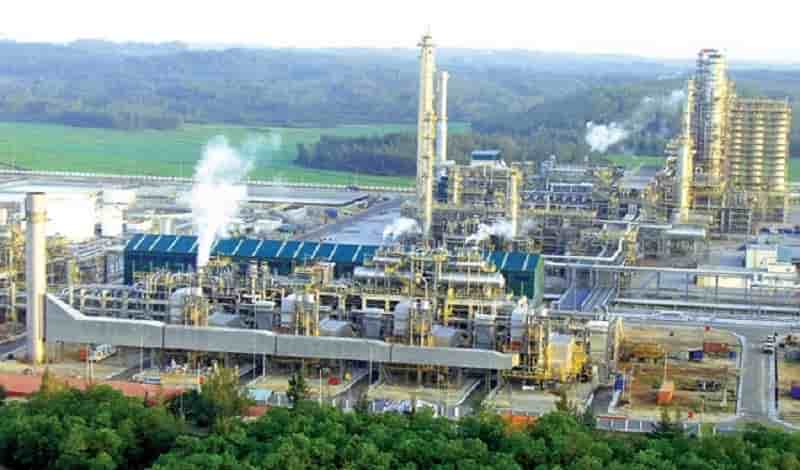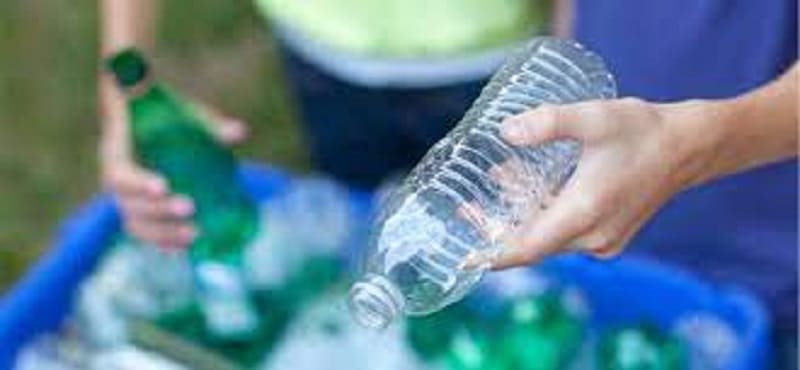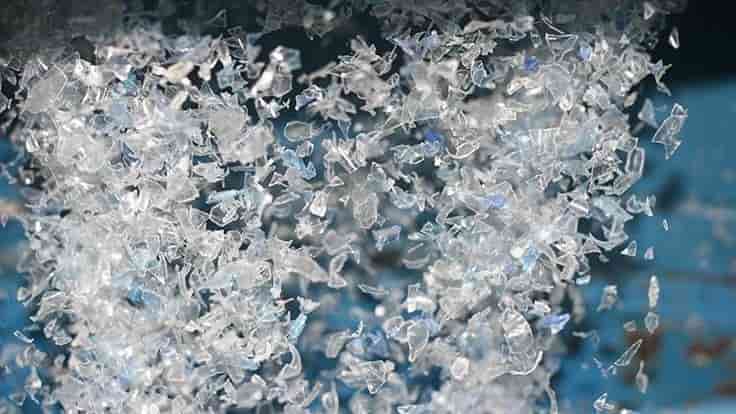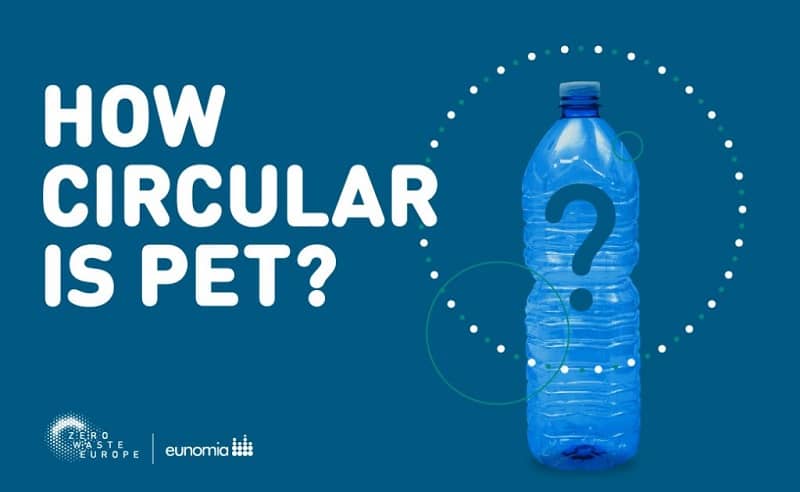Biodegradable-technology – Recycled-Bottles 25-02-2022 - Arhive
Biodegradable-technology – Recycled-Bottles
-Ukraine-Russia, polyethylene and no end to history
FRANCIS FUKAYAMA famously wrote about the “end of history” after the Berlin Wall came down. At that time, it really did feel like that for those of us who had grown up during the constant terror of the Cold War.
But with the benefit of hindsight, the history of major geopolitical divisions hadn’t come to an end, it had merely paused. Evidence of this is Mike Pence’s 2018 speech on China and the cross-party US pivot towards trying to contain the rise of China.
Further evidence that history only paused in 1989 are the Ukraine-Russia tensions. Europe seems to have edged closer to its biggest conflict since 1945 following the Russian decision to move troops into the separatist Ukraine regions of the self-declared Donetsk and Luhansk People’s Republics. Biodegradable-technology – Recycled-Bottles
Vladimir Putin has also endorsed the claims of Russian-backed separatists to the entire Donbas region of eastern Ukraine as new sanctions by the West against Russia are introduced, The endorsement of the claims is seen as moving the crisis closer to a full-blown war between Ukraine and Russia.
Today’s polyethylene pricing, margins and the four megatrends
Geopolitics is just one of the four megatrends that I see shaping global petrochemical markets in the short and long term, the other three being Demographics, Sustainability and the Pandemic – or perhaps Pandemics. A Duke University study in 2021 estimated that the probability of novel disease outbreaks – which could lead to further pandemics – would likely grow three-fold over the next few decades.
“What on earth has this got to do with the price today and next week of polyethylene (PE)?” I can hear sales and purchasing managers asking.
Absolutely everything as the first chart below shows, which details the history of northwest Europe high-density polyethylene (HDPE) injection grade prices premiums over northeast Asia (in effect, China). It is the same pattern in the other grades of PE and polypropylene (PP). Biodegradable-technology – Recycled-Bottles
China has never been as cheap versus Europe in the history of ICIS price assessments. Or to put it another way, Europe has never been as expensive compared with China.
In this first chart I cover just some of the many aspects of and interconnections between two of the megatrends that are shaping global PE markets.

-Vietnam’s NSRP closes PP plant after fire hits refinery
Vietnamese refinery operator Nghi Son Refinery and Petrochemical (NSRP) has shut its 370,000 t/yr polypropylene (PP) plant following a fire at its 200,000 b/d refinery.
The PP plant, which has been shut since 21 February, is expected to remain off line for around 10 days until early March, according to market sources. The plant has been operating at lower rates of around 60pc since early February, with buyers receiving lesser PP supplies this month. NSRP is expected to increase operating rates at the plant to 80pc after it restarts in March, market sources told Argus, but further details are unclear. Biodegradable-technology – Recycled-Bottles
The 200,000 b/d Nghi Son refinery will be off line for at least a week following a fire resulting from an electrical trip on the night of 21 February, a Vietnam-based source told Argus, although this has not been confirmed by NSRP.
The refinery was grappling with financial issues in January, leading to fears that it would shut down from mid-February to March. But it later said that it had agreed on a short-term proposal with its backers to maintain stable and sustainable operations. “A possibly lengthy shutdown will not be required,” it said.
NSRP’s partners — PetroVietnam, Kuwait’s state-owned KPC and Japanese companies Idemitsu and Mitsui — will make early payments under a fuel products offtake agreement contract to help NSRP improve its cashflow, PetroVietnam said in late January. Biodegradable-technology – Recycled-Bottles

-Symphony Environmental launch nutritional-supplement bottles using d2w biodegradable technology
Symphony Environmental Technologies plc (LON:SYM), global specialists in technologies that make plastic and rubber products “smarter, safer and more sustainable”, are pleased to announce the commencement of a two year exclusive US supply contract for their d2w biodegradable plastics technology in nutritional supplement bottles and the US launch with Better Earth LLC (“Better Earth”) of a new bottle for nutritional-supplements using d2w. Biodegradable-technology – Recycled-Bottles
Better Earth has been working with Symphony for the last two years, initially on R&D and then trials to demonstrate a reduction in the environmental impact of discarded plastic bottles. These trials have culminated in the decision to use Symphony’s d2w technology in the manufacture of Better Earth’s bottles.
Better Earth are launching the d2w bottles at the “Natural Products” Exhibition on 8 March 2022 and it is anticipated that manufacturing will commence with approximately 20 million d2w bottles of all sizes, growing to 120 million in the first year of exclusivity.
The owners of Better Earth, Adam Ackerman and James Van Brocklin said:
“We at Better Earth are very much aware of the effect that plastic bottles have on the environment. They are the best way to package our products, but as an environmentally-responsible company we have been searching for an innovative technology to reduce the environmental footprint of the bottles. With hundreds of millions of plastic bottles being used and thrown out each year, not to mention labels and caps, this problem has become a serious issue that has been talked about a lot, with no available solution known to us – until now.
“We have decided to use Symphony’s d2w technology in the manufacture of our bottles and caps which from our trials has demonstrated will make them biodegrade up to 90 times faster if they get lost as litter, where they could otherwise lie or float around for decades. We believe this will revolutionise how plastic bottles and other packaging are manufactured.” Biodegradable-technology – Recycled-Bottles

-ERI’s Shegerian pens op-ed on battery recycling
“Newsweek” publishes essay from California-based electronics recycling executive.
The co-founder of one of the largest electronics recycling companies in the United States has urged America to take battery recycling more seriously if it is genuinely committed to putting a ceiling on carbon dioxide (CO2) and greenhouse gas (GHG) emissions. Biodegradable-technology – Recycled-Bottles
The essay by John Shegerian of Fresno, California-based ERI Inc. was published on the Newsweek.com website in mid-February. “As we tackle one source of environmental degradation, we could sleepwalk into another,” warns Shegerian to readers who may favor the use of electric vehicles (EVs) but may not be aware of the “flood of retired EV batteries [that] is heading toward us.”
Pointing to cardboard as an example of a material with a high recycling rate, Shegerian says a similar type of campaign that boosted paper recycling is needed for batteries. Biodegradable-technology – Recycled-Bottles
The ERI executive also mentions the fire hazards of discarded lithium-ion batteries and refers to them as “100 percent recyclable” if the effort is made.

-YKK Announces New Collection Of Recycled Zippers Made Using ECONYL® Regenerated Nylon In Europe
Recognizing that trims are one of the biggest challenges for garment recycling, YKK announces a new collection of NATULON® recycled zippers made with ECONYL® regenerated nylon. ECONYL nylon, manufactured by Aquafil S.p.A.and supplied in collaboration with ITOCHU Corp., is made entirely from nylon waste collected all around the world, such as industrial plastic, fabric scraps, old carpets and fishing nets from the aquaculture sector. The material can be continuously recycled without loss of quality. Biodegradable-technology – Recycled-Bottles
YKK will offer ECONYL regenerated nylon products in three categories to the European market:
- VISLON® NATULON recycled zipper made with ECONYL, a fully ECONYL plastic injected zipper;
- EXCELLA® NATULON recycled zipper made with ECONYL, a top-of-the-range brushed metal zipper;
- Recycled sew-on button made with ECONYL, a simple button to sew on nylon garments.
“YKK understands circular fashion as a regenerative system where garments are circulated for as long as their maximum value is retained, and then returned safely to the biosphere,” said Hitoshi Yamaguchi, president of YKK Italy. “As a small part of the supply chain, we firmly believe that circularity is the key to building sustainability. This is our motivation when we design the highest quality recycled and recyclable fastener products. Not only do we want to optimize the use of raw materials and increase the recycled content, but we also work to understand the end of life of the garments and verify the compatibility between our proposals and their subsequent recycling. Biodegradable-technology – Recycled-Bottles
Put simply, our products are designed with the concepts of resource efficiency, non-toxicity, biodegradability, and recyclability in mind. They are also produced giving priority to recyclable sources and ethical practices.”

-New report: PET, the most circular of all plastics, is far from real circularity
A picture of the true state of circularity of this material in bottles in Europe – including how much material from bottles is collected for recycling; how much of it is actually recycled; and how much of recycled PET is put into new bottles
New research produced for Zero Waste Europe by sustainability consultancy Eunomia Research & Consulting shows that most Polyethylene terephthalate (PET) plastic recovered from bottles in Europe does not make its way back into new PET bottles. Significant Improvements in PET design, collection and recycling will be needed to improve circularity. Biodegradable-technology – Recycled-Bottles
Published the “How circular is PET?” report presents a picture of the true state of circularity of this material in bottles in Europe – including how much material from bottles is collected for recycling; how much of it is actually recycled; and how much of recycled PET is put into new bottles.
The research finds that:
Most recycled PET recovered from bottles in Europe is being used in other lower-grade PET applications such as trays, film, strapping or fibres – with new bottles placed on the market containing an average of just 17% of recycled PET, despite a recycling rate of around 50%.
Recycled content for all PET product streams – including single-use plastic trays, textile fibres, films and strapping – is sourced from bottles, due to very low levels of recycling for non-bottle PET applications. Of the 1.8 million tonnes of recycled flake output from bottles, only 31% is made into pellets for bottles, with the rest (69%) going into other PET products.
The picture for PET bottle recycling varies across the continent, with some countries achieving high recycling rates mainly due to the presence of Deposit Return Systems (DRS), while others have lower recycling rates when only employing separate collection systems. Biodegradable-technology – Recycled-Bottles
Key EU policy changes and commitments from large brands show an ambition to increase PET circularity. However, the report shows that higher levels of recycled content may be achievable with the implementation of enhanced collections such as Deposit Return Systems (DRS); moving from coloured and opaque bottles to clear bottles; and prioritising bottle-to-bottle recycling to prevent cascade to other non-bottle PET applications. In addition to mechanical recycling, there is potential for chemical depolymerisation technologies to contribute to overall PET circularity – provided they reach full maturity and their full impact is assessed.
With those changes, it may be possible to reach an upper limit between 61% and 75% recycled content in bottles by 2030; but, under current market conditions, this could reach as low as a minimum policy-driven target of 30%.

Biodegradable-technology – Recycled-Bottles
